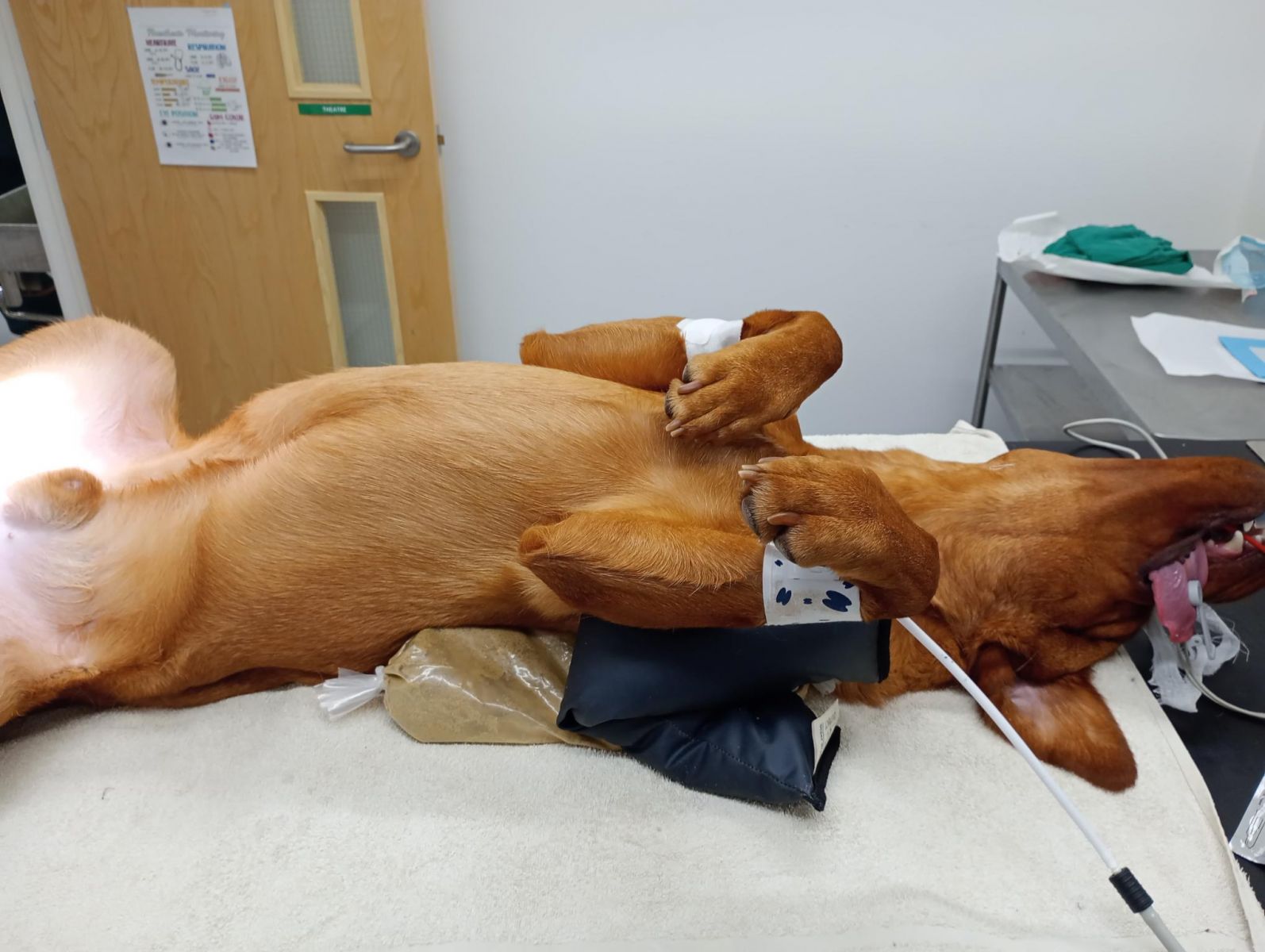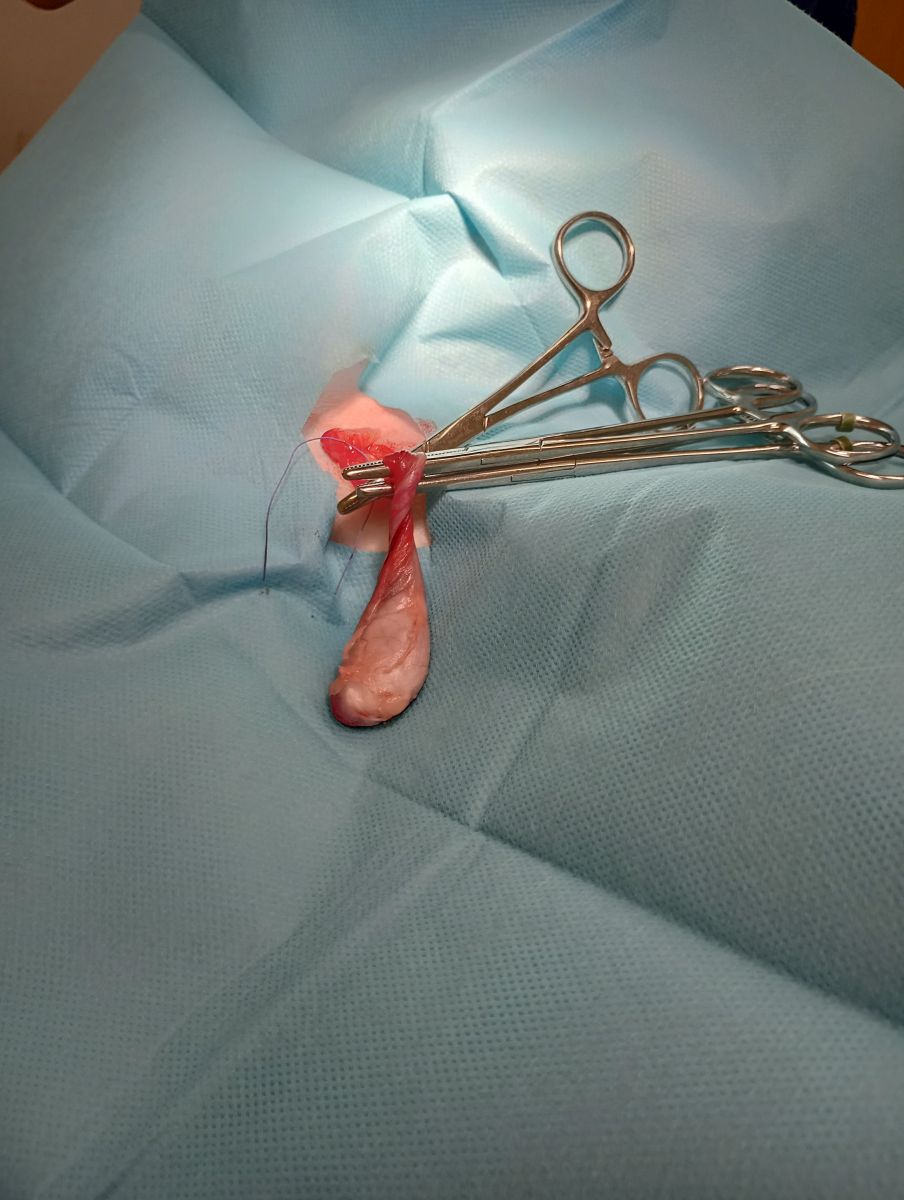
Posted By:
A couple of weeks ago, at the age of 18 months, I thought it was high time I booked my male Labrador in to be castrated. At 18 months, I thought this was a good age (for medium/ larger breeds we usually recommend neutering between 12-18months). He had had time to mature, both his testicles were present (some male dogs can have retained testicles, a term often referred to as cryptorchid). I wasn't planning on breeding from him (I wouldn't wish Scooby Doo genes to be passed on to any unsuspected new owners) and I wanted to minimize the risks of testicular cancer and prostatic diseases.
However, like many dog owners, I was reluctant to rush into such a big decision. Firstly, castration (removal of both testicles, and eventually the hormone testosterone) seemed so final. What if it changes his personality? Would I be making a massive mistake? Would he turn into a devil dog? (please note, contrary to what a lot of people think, neutering does not ‘calm your dog down’).
I am, after all very lucky to have a pretty good hound. Yes, admittedly, not the brightest, but his recall is pretty good, he is pretty laid back and roughly 90% of the time he listens to me and pays attention However, I had to do something. I couldn't let him carry on harassing the local female dogs of Shepton and Wells.
Thankfully for me, Oakley (the hound) never displayed any other behaviours that made me want to castrate him sooner. Common behaviours seen in male dogs, where neutering may be beneficial, include urine marking, mounting and as mentioned above roaming/running off, or in my case, terrorizing the local females.
So, rewind 6 months and instead of booking Oakley in for the big snip (I am a ‘better safe than sorry’ kind of person) I decided to opt for chemical castration instead. Having worked in practice for nearly 10 years, I had heard that more and more people were opting to try this before committing to the real deal.
Chemical Castration, or Superlorin is an implant that can be placed under the skin. Superlorin is a temporary measure that basically makes dogs infertile (can also be used in ferrets and more recently a license has been granted for it to be used in male cats). It has the same effects of castration but is reversible (it wears off over a period of 6-12 months depending on which option you choose).
Superlorin acts as a great ‘try before you buy’ option. It is a really quick procedure, which the vet can do in a matter of minutes. It is pretty painless too. Even my wimp of a dog didn't mind (yep! Oakley is the biggest wimp ever).
The implant also carries few risks. The only thing you may see is a swelling around the injection site (usually the scruff of the neck) and the most obvious thing that you may notice is that the testicles will shrink in size (yes this is a thing).


So, after 6 months, me and my hound have come full circle, and the deed has been done. The procedure itself was absolutely fine, and apart from feeling a little groggy, Oakley is none the wiser (he was more concerned about the lack of breakfast on the big day).
If you are at the point where you are considering neutering your dog, and are unsure in any way, then I would consider chemical castration as an option. However, please be rest assured that at the practice we are always here to offer support and guidance. The chances are, like most pet owners, we have asked ourselves the same questions.
Whilst on my visits I have been having several discussions...
As our feline friends get older there are a few conditions...
Another winter discussion group season is now behind...
©2024 Shepton Veterinary Group Ltd., All rights reserved.
Privacy Policy • Terms & Conditions • Cookie Policy